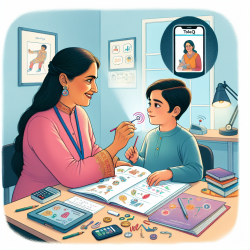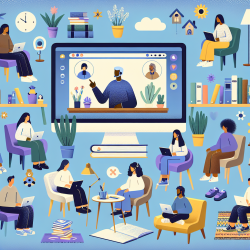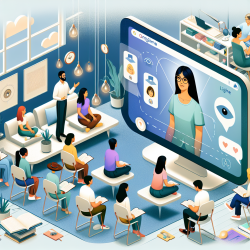The COVID-19 pandemic has significantly impacted healthcare delivery across various specialties, including otology and neurotology. A recent study titled Expanded use of teleservices in otology and neurotology in response to the COVID-19 (SARS-CoV-2) pandemic by Redleaf et al. (2020) provides compelling evidence on the effectiveness and expanded use of teleservices in these fields. This blog aims to help practitioners improve their skills by implementing the outcomes of this research or by encouraging further exploration into teleservices.
Key Findings from the Research
The study, published in the Laryngoscope Investigative Otolaryngology, highlights several critical outcomes:
- Increased Accessibility: Teleservices have significantly increased patient accessibility to otology and neurotology care, especially for those in remote or underserved areas.
- Efficiency in Diagnosis and Treatment: Telehealth platforms have facilitated timely diagnosis and treatment, reducing the need for in-person visits and thereby minimizing the risk of COVID-19 transmission.
- Patient Satisfaction: High levels of patient satisfaction were reported, attributed to the convenience and reduced travel time associated with teleservices.
- Professional Collaboration: Teleaudiology and telementoring have enabled better collaboration among healthcare professionals, enhancing the quality of care provided.
Implementing Teleservices in Your Practice
To incorporate the findings from this research into your practice, consider the following steps:
- Adopt Reliable Telehealth Platforms: Choose telehealth platforms that are secure, user-friendly, and compliant with healthcare regulations such as HIPAA.
- Train Staff and Patients: Provide comprehensive training for both staff and patients to ensure smooth operation and utilization of telehealth services.
- Monitor and Evaluate: Continuously monitor the effectiveness of telehealth services and gather feedback from patients to make necessary improvements.
- Collaborate with Colleagues: Engage in teleaudiology and telementoring programs to enhance your professional skills and provide better patient care.
Encouraging Further Research
While the study by Redleaf et al. provides valuable insights, further research is essential to fully understand the long-term implications and potential of teleservices in otology and neurotology. Practitioners are encouraged to:
- Conduct longitudinal studies to assess the sustained impact of telehealth on patient outcomes.
- Explore innovative telehealth technologies and their applicability in otology and neurotology.
- Share findings and best practices with the broader medical community to foster collective learning and improvement.
By staying informed and actively participating in research, practitioners can contribute to the evolution of telehealth and ensure the delivery of high-quality care.
To read the original research paper, please follow this link: Expanded use of teleservices in otology and neurotology in response to the COVID-19 (SARS-CoV-2) pandemic.










